SEK’s Keita Furushima to Participate in the 23rd Summer Deaflympics as Captain of Japan’s National Football Team!
July 11, 2017
The 23rd Summer Deaflympics Games will be held in Samsun, Turkey from Tuesday, July 18 to Sunday, July 30.
The Deaflympics is an international sports event recognized by the International Olympic Committee for people with hearing loss which is held once every four years. The Deaflympics Games were first held in Paris, 1924, and currently 104 countries are participating.
We are proud to introduce that Keita Furushima of Sharp Engineering Corporation (hereinafter referred to as “SEK”), our group company handling after-sales service of Sharp products and various solution businesses in Japan, will participate in the upcoming Deaflympics as the captain of Japan’s national football team!
We set up an interview with Mr. Furushima with Mr. Yuuki Takahashi from Sharp Tokusen Industry Co., another group company of Sharp as our interviewer, himself a former participant of Deaflympics as a player for the national football team.
[Special Interview] Yuuki Takahashi with Keita Furushima
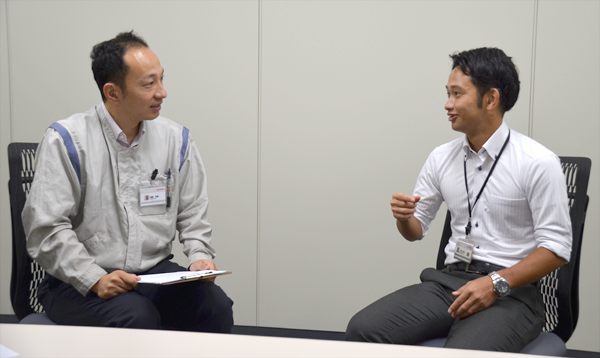 Left: Yuuki Takahashi, Right: Keita Furushima
Left: Yuuki Takahashi, Right: Keita Furushima
(Takahashi) When did you start playing football?
(Furushima) I started playing football when I was five, influenced by my father and brother. From childhood I played football together with non-disabled people, and in high school my team became quarterfinalists in the Osaka Prefecture Qualifications. I quit football after that once, but later I was invited by my friend to play deaf football.
(Takahashi) You didn’t know about deaf football until then?
(Furushima) I knew a bit through website information and such. When I first participated in their team practice, there was a member from the national football team and I was surprised at the height of their level. There are deaf football teams nationwide in Japan, and there are selection teams as well. When I joined the selection games, I was invited to the training camp for nominees of the national team by the head coach who saw me play.
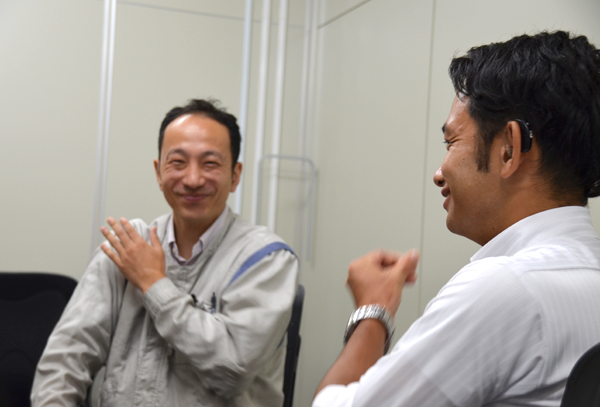
(Takahashi) Did you feel differences between playing regular football and deaf football?
(Furushima) The first thing that surprised me about deaf football is that you must remove hearing aids and you have to play in complete silence. Players cannot hear the referee blowing a whistle, so the referee waves a flag. Non-disabled people communicate vocally when passing the ball, but in deaf football, you need to communicate by eye-contact and gestures, so that was difficult at first.
(Takahashi) I know. Non-disabled people can call out “Furushima san!” to catch your attention, but that does not go with deaf football. Even if you try to watch each other’s moves while playing, you can miss the surroundings when you are concentrating hard.
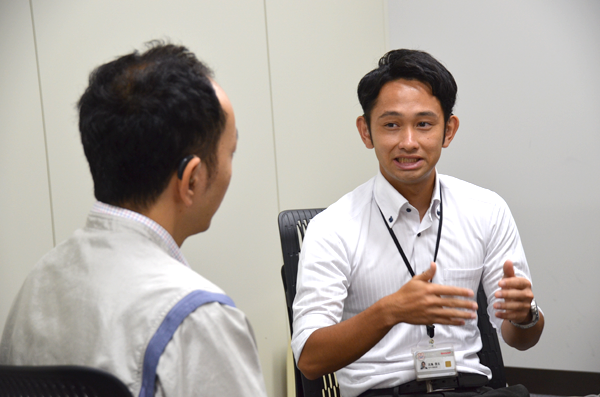
(Furushima) We need to collect information through our eyes two or three times more than a non-disabled person to communicate during a match. You need to look at the players, look at the coach, and look what’s happening around you.
(Takahashi) When was the first time you were selected as a national team player?
(Furushima) I first joined the national team when I was 21, the Asian Games to qualify for the Deaflympics. Iran were the champions in all previous six Asian Games, but we were able to win for the first time then.
(Takahashi) Japan’s level is rising, but the level of deaf football worldwide is even higher. What do you think Japan needs to do to reach the same heights of the world’s top level?
(Furushima) The level of Asia is rising overall, but there are limits of number of teams that can qualify for the Deaflympics, and there are also discussions to reduce the number of qualifiers from Asia. First I believe we must raise each other’s level to make Asia more competitive against European and South American teams.
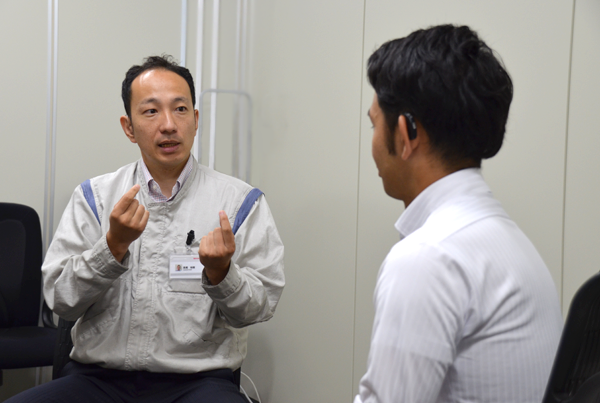
(Takahashi) Japan first qualified for the Deaflympics in 2005, and we ended as qualifiers then. The same was for the 2009 Games, our second appearance. You joined the national team in our third appearance, 2013, and we still could not pass the qualifiers. However we started to play at a more competitive level, and we almost made the finalists tournament. I really hope you will be able to pass the qualifiers this time.
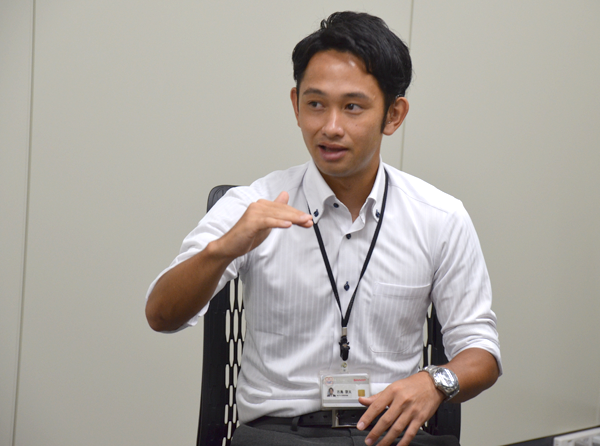
(Furushima) Right now we have younger players who are playing at higher levels of football in Japan, such as the JFL (Japan Football League) category and university club football, and the level of the national team is continuing to rise. In order for us to win international matches, we must come together as one and be absolutely persistent to be victorious. I am thankful to the seniors who have created the foundation of the current national team, and I want to contribute to build up on this foundation for the youth and children who will succeed me by marking good results in the upcoming Deaflympics.
(Takahashi) I think that by raising the recognition of deaf sports, it will create more opportunities for deaf children to start playing football. Sometimes when they play with the non-disabled, they are recommended not to play because it could be too dangerous for them. Some people give up football because they cannot hear. I hope more people will learn that there are international competitions like the Deaflympics and many deaf sports to play.
(Furushima) The recognition of the Deaflympics in Japan was about 11% in the survey of 2014. It was about 2% in 2008, so the recognition has raised just over these six years. Along with that, I feel there is more media coverage than before. I played football up to high school with non-disabled people and had the desire to become a pro or play for the national team, but I gave up my dream for once. If more people learn there are deaf sports and games like the Deaflympics, I think those ideas will change from being a vast dream to a clear goal.
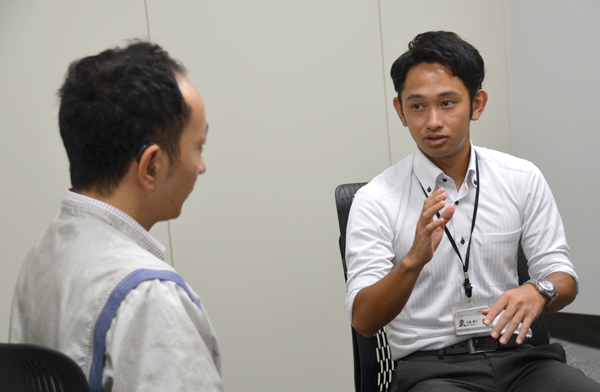
(Furushima) People with disabilities are more likely to hit the wall and face difficulty maintaining their motivation compared with non-disabled people. However, I think that by moving your body through deaf sports, you can feel more joy, become healthier, and be more positive. I learned a lot through football, and I want more people to learn about deaf sports, so I try to find opportunities to visit schools to teach football to children as much as I can.
Keita Furushima at work
(Takahashi) What kind of work are you in charge of?
(Furushima) I am a member of the general affairs department of SEK, and right now I am in charge of personnel affairs.
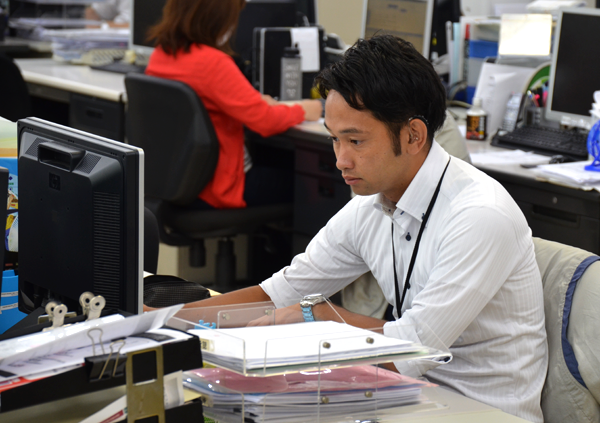 A scene at office
A scene at office
(Takahashi) Are there any tips you have devised to help you in your daily work?
(Furushima) At meetings, I ask my colleagues to type out what is discussed so I can understand the conversation going on. When someone talks to me, I make sure to repeat what is said to confirm what was said. Other than that, especially in the winter season, people wear masks, and it is difficult for me to understand what is said to me as I also read their lips. In such cases, I ask them to take off their masks.
(Takahashi) Why did you decide to join Sharp?
(Furushima) There were a lot of Sharp products in my home when I was growing up, and I wanted to find a job related to home electronics. I also learned about Sharp Tokusen Industry Co. that emphasizes in recruiting people with disabilities, and so I had the impression that Sharp is a company with a good understanding against people with disabilities.
(Takahashi) How do you manage handling work and football at the same time?
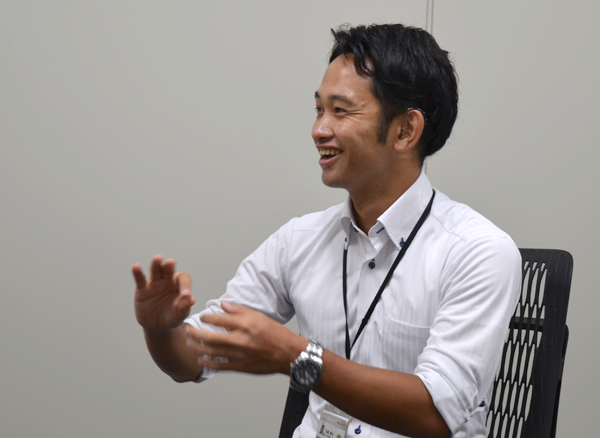
(Furushima) Since I go to practice after work, sometimes I get back home past 23 o’clock. Therefore, I am careful about taking care of tiredness. Whenever I have the time I go to the orthopedic to take care of my body, and I’ll take a quick nap during lunch break. Those little efforts help me improve my condition, so I make sure to be careful using time, taking care of my condition, and controlling my diet. I also try to work efficiently so I do not work overtime as much as possible. I would like to take on my work as hard as I play football so I can reduce the burden on the company.
(Takahashi) What have you learned from playing football that you apply to your work?
(Furushima) Some people are uncertain how to communicate with deaf people, so I make sure to be proactive and state my opinions and act first. I believe I learned this attitude through playing football.
(Furushima) I think that by participating in the Deaflympics, I can contribute to lifting the atmosphere within our company and create a sense of accomplishment. There are many others in Sharp with disabilities. I am certain they face difficulties in carrying out their everyday work as well. If the recognition of myself will contribute to the recognition to all people with disabilities, I think I can help inspire the overall Sharp brand as well as lifting the atmosphere within our company. I’ve received many words of support, and now I feel it is my duty to mark good results.
(Mr. Yoshida, boss of Mr. Furushima, General Manager of SEK) Mr. Furushima works diligently and takes on his tasks seriously all the time. He always holds responsibility in his work, and there is little that I do special because of his disabilities. He has never asked to cut down his assignment in order to secure time for football either. He works around efficiently to make sure he finishes his work within working hours by himself.
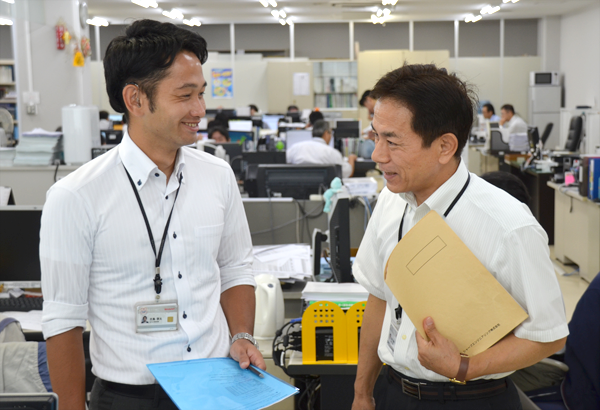 Left: Mr. Furushima, Right: Mr. Yoshida, General Manager of General Affairs Dept.
Left: Mr. Furushima, Right: Mr. Yoshida, General Manager of General Affairs Dept.
(Mr. Yoshida) I think his strong sense of responsibility leads to his position as captain of the national football team. Our President, Mr. Tsuruta, introduced that Mr. Furushima will participate in the Deaflympics the other day, and the supportive mind within our company is increasing. He does not mention it but I am sure it is tough to carry the burden of being a member of the national team while carrying out his everyday work. I really hope he can do his best at the Deaflympics.
Encouragement from Mr. Tsuruta, President of SEK
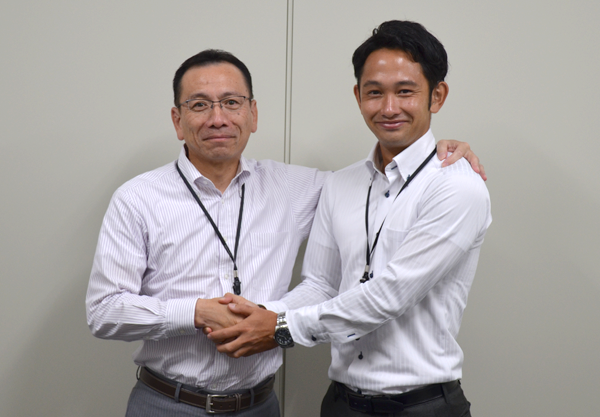 Left: President Tsuruta of SEK, Right: Mr. Furushima
Left: President Tsuruta of SEK, Right: Mr. Furushima
(Tsuruta) I think that the pressure is great for him to participate in the Deaflympics as captain, a totally different role from his previous appearance four years ago. I also have high expectations for him, and I took the opportunity once to visit him at a training camp held in Hokkaido. He usually shows a kind and gentle face at work, but on the football field he was wearing the face of a tough and reliable captain. I am confident that this experience will lead to his inner growth, and it will help him in his future work as well. Mr. Furushima is the pride of SEK, and it is an honor for us to have him. We do not regard him as someone who needs to be treated specially because of disabilities, but he is one of us who we wish will do his best in the upcoming matches and work hard as a team leader.
Let us with the best for Mr. Furushima, the national team, and all participants of the Deaflympics!
Related articles
-
 Sharp exhibits at CES 2024, one of the world’s largest technology trade show – Global debut of innovative technologies presented at SHARP Tech-Day –
January 9, 2024
Sharp exhibits at CES 2024, one of the world’s largest technology trade show – Global debut of innovative technologies presented at SHARP Tech-Day –
January 9, 2024
-
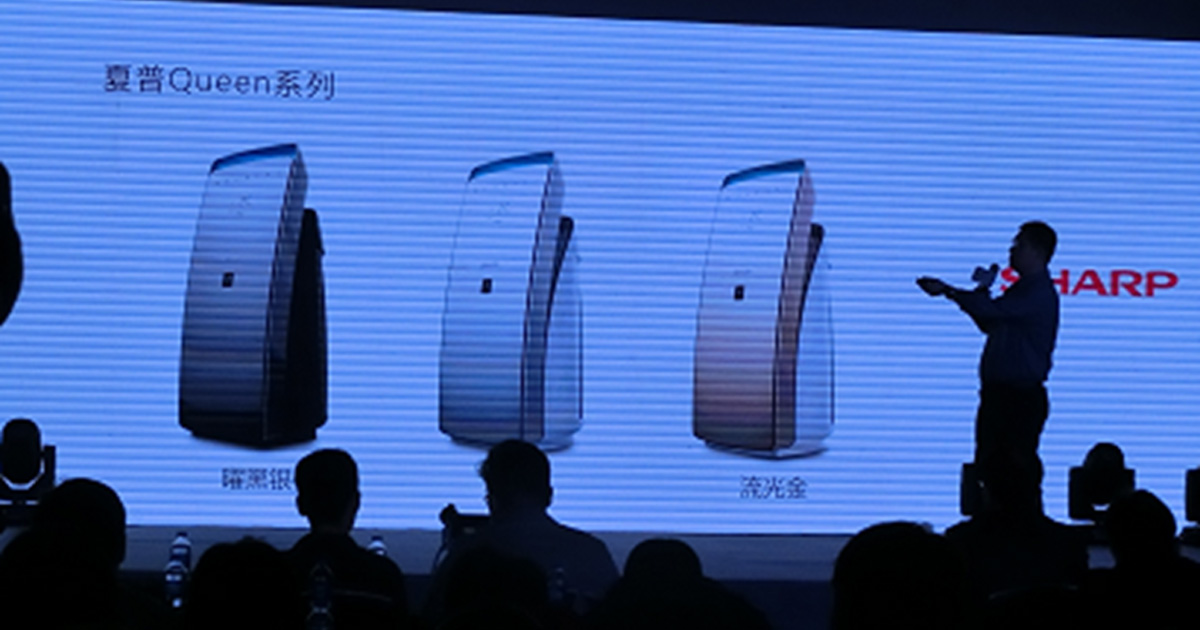 Sharp’s Health and Environment Systems Business presentation held at Shanghai, China
March 31, 2017
Sharp’s Health and Environment Systems Business presentation held at Shanghai, China
March 31, 2017
-
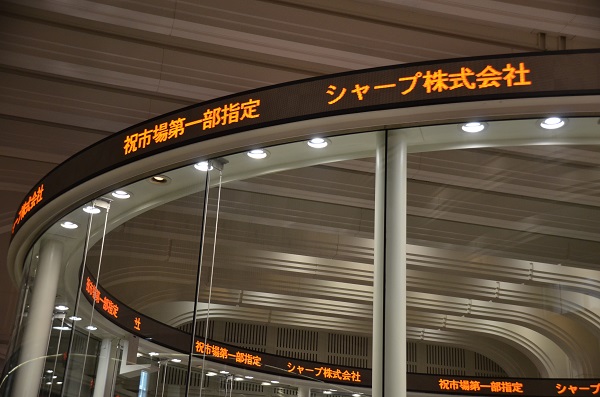 Sharp Listed to the First Section of the Tokyo Stock Exchange
December 7, 2017
Sharp Listed to the First Section of the Tokyo Stock Exchange
December 7, 2017
-
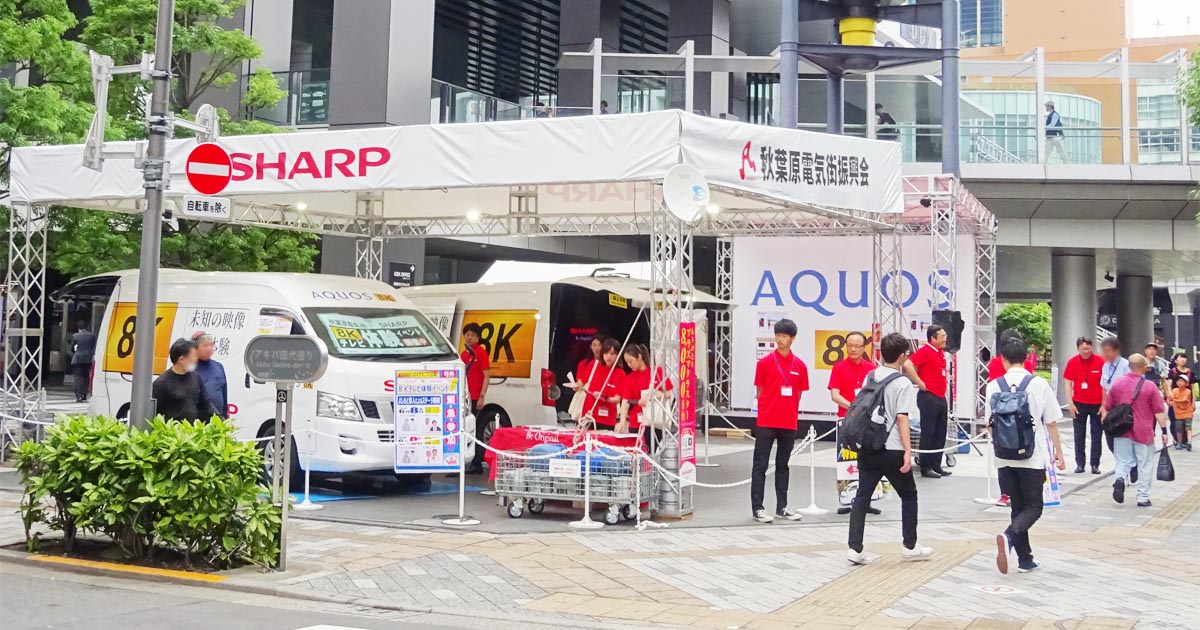 Akihabara Electrical Town x Sharp 8K TV Experience Event
Akihabara Electrical Town x Sharp 8K TV Experience Event
Watch 8K/4K Images in the Town of Latest Technology in Japan July 4, 2019 -
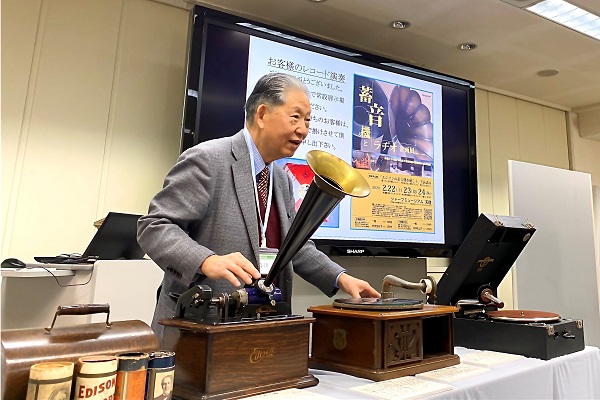 “Gramophone and Radio Exhibition” Sounds the Connection between People That Never Fade
March 5, 2020
“Gramophone and Radio Exhibition” Sounds the Connection between People That Never Fade
March 5, 2020
-
 Sharp at CEATEC 2023! – Unique products such as Haneyasume and Click Display on Exhibit
October 19, 2023
Sharp at CEATEC 2023! – Unique products such as Haneyasume and Click Display on Exhibit
October 19, 2023
-
 Kawaii meets Home Appliances -Sanrio Characters and SHARP Team Up!
November 13, 2025
Kawaii meets Home Appliances -Sanrio Characters and SHARP Team Up!
November 13, 2025
-
 Sharp commemorates its 111th anniversary – “Sharp Technology Day” will be held on November 11, 2023
April 25, 2023
Sharp commemorates its 111th anniversary – “Sharp Technology Day” will be held on November 11, 2023
April 25, 2023
-
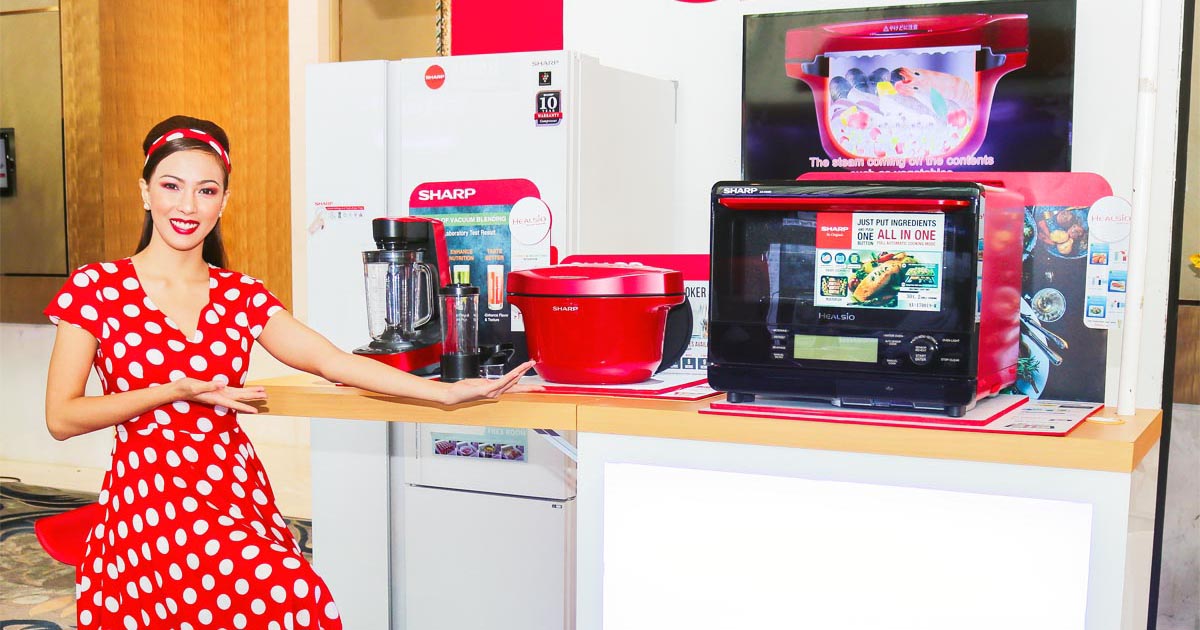 Sharp Philippines Provides Better Solutions for a Better Life
July 18, 2019
Sharp Philippines Provides Better Solutions for a Better Life
July 18, 2019
-
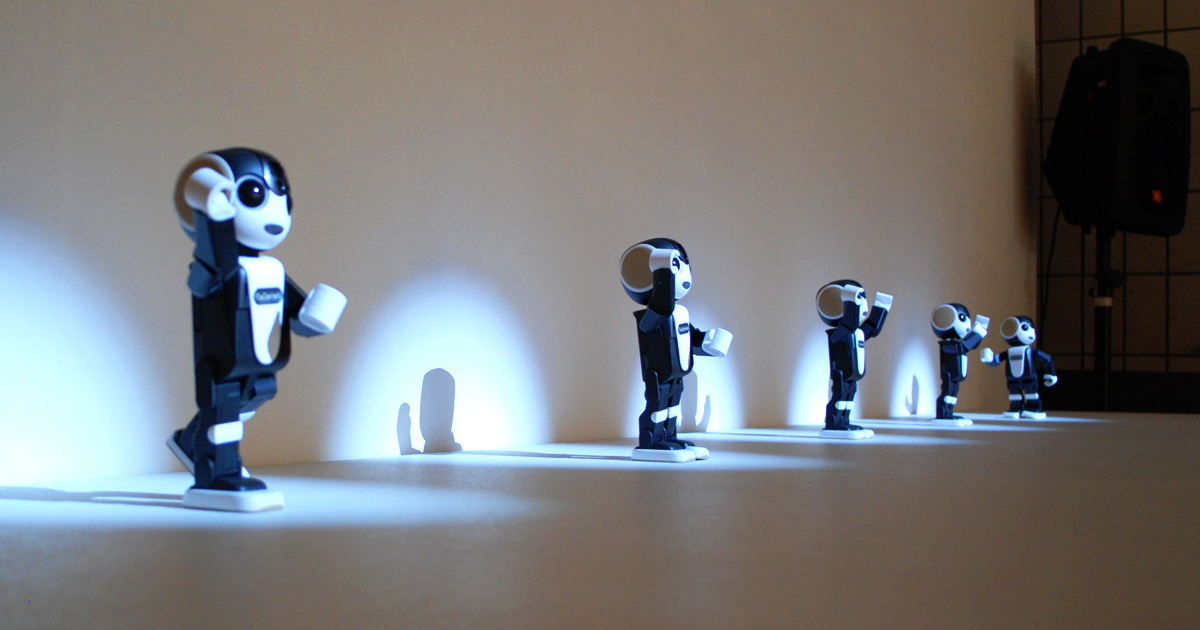 RoBoHoN showed off its dancing skills in Austria! The RoBoHoN exhibit at the Ars Electronica Festival
September 23, 2016
RoBoHoN showed off its dancing skills in Austria! The RoBoHoN exhibit at the Ars Electronica Festival
September 23, 2016